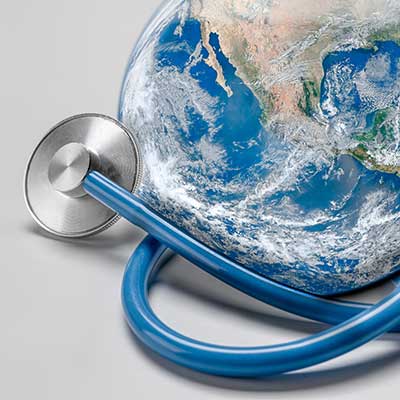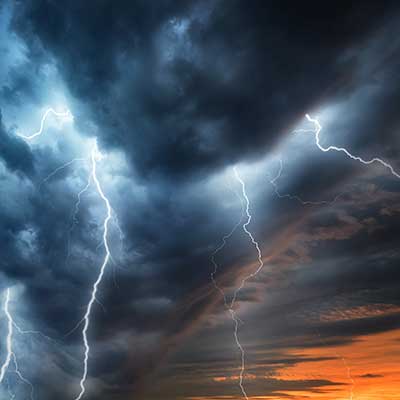Undergraduate Certificates
The Department of Geography offers undergraduate certificates in Geographic Artificial Intelligence & Big Data, Geospatial Information Analysis, Medical Geography, and Meteorology and Climatology.
Interested in a certificate?
Please read our frequently asked questions before you apply.
GeoAI: Geographic Artificial Intelligence & Big Data Certificate
The integration of Geography and AI: GeoAI, provides novel approaches for addressing a variety of geospatial challenges in the real world.
This certificate will develop transferable skills in GeoAI to address issues impacting our environment and societies. GeoAI training is critical given projected growth ~16% in this industry by 2050.
Credits
12 – 13 (Certificates must contain at least nine credits of coursework that are unique to that program out of all other certificates and minors.)
One (1) of the following introductory courses
- GIS 2002: The Digital Earth (3 Credits)
- GIS 2114: The World & Big Data (3 Credits)
One (1) GIScience techniques course from any of the following options
- GIS 3043: Foundations of Geographic Information Systems (4 Credits)
- GIS 4021C: Aerial Photo Interpretation (3 Credits)
- GIS 4037: Digital Image Processing (4 Credits)
- GIS 4102C: GIS Programming (3 Credits)
- GIS 4115: Applied Geostats (3 Credits)
- MET 3753: Pragmatic Python for Weather (3 Credits)
- MET 4750: Spatial Analysis of Atmospheric Data Using GIS (3 Credits)
One (1) GIScience applications course from any of the following options
- GIS 3420C: GIS Models for Public Health (3 Credits)
- GIS 4113: Introduction to Spatial Networks (3 Credits)
- GIS 4324: GIS Analysis of Hazard Vulnerability (3 Credits)
- GIS 4424C: Applications for GIs for Zoonoses and Disease Ecology (3 Credits)
- GIS 4500: Population GIS (3 Credits)
- MET 4410: Radar and Satellite Meteorology (3 Credits)
Take the Capstone GeoAI course
- GIS 4123C: GeoAI – Geographic Artificial Intelligence (3 Credits)
Geospatial Information Analysis Certificate
Geospatial information is used in both research and practice with job opportunities expected to grow 22% from 2010 to 2020. This certificate covers a variety of geospatial technologies and analytic methods, such as digital mapping, geographic information system (GIS), and remotely sensed image processing, aiming to develop spatial thinking ability for students. Lab-based applications emphasize hands-on experiences of these technologies.
Open to all currently enrolled undergraduate students. At least nine credits of coursework must be unique to the Geospatial Information Analysis certificate out of all other certificates and minors.
Credits
11 – 12 (Completed with an average 2.67 GPA in all attempted courses)
- GIS 3043 – Foundations of Geographic Information Systems (4 Credits)
- GIS 4037 – Digital Image Processing (4 Credits)
- GIS 4001C – Maps and Graphics (4 Credits)
- GIS 4021C – Air Photo Interpretation (3 Credits)
- GIS 4113 – Introduction to Spatial Networks (3 Credits)
- GIS 4115 – Applied Geostats (3 Credits)
Medical Geography Certificate (Undergraduate)
The world faces a pressing need for geographic theories, methods, and techniques to address global health issues. The Medical Geography certificate provides training in spatial disease ecology, global health, and essential geostatistical approaches to public health. Hands-on experiences of geospatial analysis are emphasized through lab-based applications.
Credits
12 – 13 (Completed with minimum grades of B-)
- GIS 3452 – Introduction to Medical Geography (3 Credits)
- GIS 3454 – People and Plagues (3 Credits)
- GIS 3043C – Foundations of GIS (4 Credits)
- GIS 3420C – GIS Models for Public Health (3 Credits)
- GEO 3162C – Introduction to Quantitative Analysis for Geographers (4 Credits)
- GIS 4113 – Introduction to Spatial Networks (3 Credits)
- GIS 4124 – Geocomputation Using R (3 Credits)
- GEO 4424C – Applications in GIS for Zoonoses and Disease Ecology (3 Credits)
More about the Medical Geography (Undergraduate) certificate
Meteorology and Climatology Certificate
The Meteorology and Climatology certificate provides a working knowledge of atmospheric processes across spatial and temporal scales. This certificate is applicable to many disciplines in the physical sciences and enables students to supplement their majors with an understanding and awareness of the societal impacts of natural hazards and climate change.
This certificate is designed for students seeking employment as climatologists, broadcast meteorologists, water district managers, those interested in environmental issues, to prepare for graduate studies, or those who just love the weather.
Credits
12 Credit Hours (Minimum B- for all courses)
One (1) of the following courses
- GEO 2242 – Extreme Weather
- MET 1010 – Principles of Weather and Climate
Minimum one (1) of the following courses
- GEO 3250 – Climatology
- MET 3503 – Weather and Forecasting
Minimum one (1) of the following courses
- MET 4532 – Hurricanes
- MET 4560 – Atmospheric Teleconnections
- MET 4750 – Spatial Analysis of Atmospheric Data GIS
- GEO 2006 – Natural Hazards Geography
- GEO 3280 – Principles of Geographic Hydrology
- GEO 3334 – Managing for a Changing Climate
- GEO 3341 – Extreme Floods
- GIS 4324 – GIS Analysis of Hazard Vulnerability
- GLY 3074 – Oceans and Global Climate



